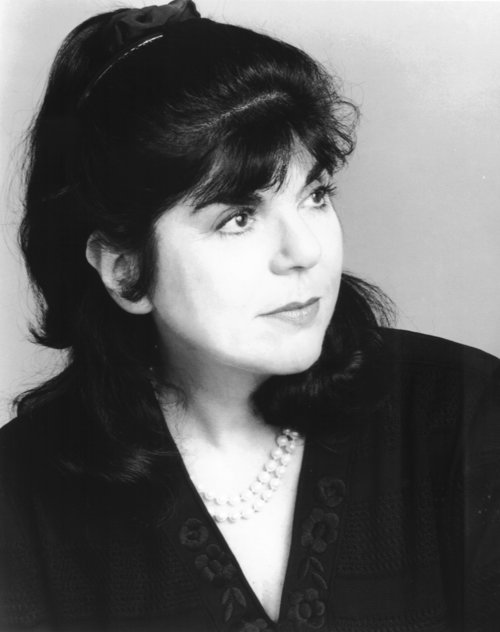

|
The American conductor Eve Queler is the Music Director of the Opera Orchestra of New York who perform mainly rare operas in concert version in Carnegie Hall. In 1995-96 the renowned institution celebrated its 25th anniversary, where Queler has conducted more than 60 operas. The four to five performances each season are broadcast on National Public Radio, some of them were live-recorded, including Massenet's Le Cid with Plácido Domingo, Donizetti's Gemma di Vergy and Verdi's Aroldo with Moserrat Caballé, Puccini's Edgar with Renata Scotto and Carlo Bergonzi. All of them are the only existing CDs of these works. Queler's recording of Janáček's Jenůfa (shown below) with Gabriela Beňačková and Leonie Rysanek belongs to the archive of historically important releases. She has also made studio recordings of opera rarities Guntram by Richard Strauss and Nerone by Arrigo Boito. Queler also conducts the symphonic repertory, and has worked with the Philadelphia Orchestra, Cleveland Orchestra, Montreal Orchestra, San Antonio Orchestra, Orchestra of the Rome Opera, the Edmonton Orchestra and many other American orchestras. She has guest conducted at the opera of Nice, Teatro Liceu in Barcelona (I Vespri Siciliani with Caballé and Domingo), Austalian National Opera in Sydney (Die Entführung aus dem Serail), New York City Opera (Le Nozze di Figaro with Samuel Ramey), in Las Palmas (Elisir d'Amore with Leo Nucci), at the Marklinski Theater/Kirov Opera in St. Petersburg (Mazeppa), at the National Theater Brno (Jenůfa), the Hamburg Staatoper (Don Pasquale), Der Fliegende Hollander at the Kessel Opera, the Smetana Divaldo in Prague (Carmen and Rigoletto) and at the Bonn opera (Jenůfa, La Traviata and Fidelio). She also conducted concert version performances at the Salle Pleyel in Paris, a gala performance of Bellini's I Puritani with Alfredo Kraus with the Philharmonic Orchestra at the Royal Festival Hall in London, and Giordano's Fedora for the French Radio ORTF in Paris. Queler has conducted at the Pretoria Arts Center for a production of Les Contes d'Hoffmann, and also conducted an opera gala for the South African TV, as well as Orff's Carmina Burana and the Sibelius Violin Concerto. In Canada she led Il Barbiere di Seviglia with Opera Hamilton. Gala Verdi concerts in Mannheim and Wiesbaden in January 1996 were extremely successful. In June of 96, she was a guest at the "Las Palmas Opera Festival" with Fidelio which gained excellent public and critical success. During the "Silver Jubilee" 95/96 of the Opera Orchestra of New
York, Eve Queler conducted Bellini's Norma (with Jane Eaglen),
Armida by Rossini (with Renée Fleming)
as well as Giovanna d'Arco by Verdi (with June Anderson). In
1997 there were concert opera performances at Carnegie Hall of La Cenerentola,
Tristan und Isolde and Ernani.
In May 1997 Queler made her debut at the Frankfurt Opera conducting performances of Rossini's Tancredi. Eve Queler has worked with many famous singers, the list includes to the already mentioned ones also Behrens, Borodina, Cappuccilli, Chernov, Devia, Dimitrova, Gedda, Hvorostovsky, Leech, Millio, Ricciarelli, Sabbatini and Vaness. Eve Queler has many distinctions including two honorary doctorates. In March 1995 she was honored by New York University for a Leading Woman in the Arts while in September of that year, the "Butterfly Award" of the Licia Albanese-Puccini Foundation was presented to her for her outstanding work with performances of Puccini's lesser known works. A native of New York City, Ms. Queler studied at the Mannes College
in New York and followed master classes with famous conductors
like Igor Merkevich and Walter Suskind. She has made a name for herself
also with various publications on rare operas and made critical editions
of three of Donizetti operas.
== Text of biography (slightly edited) from
the agent's website
== Names which are links in this box and below refer to my interviews elsewhere on my website. BD |
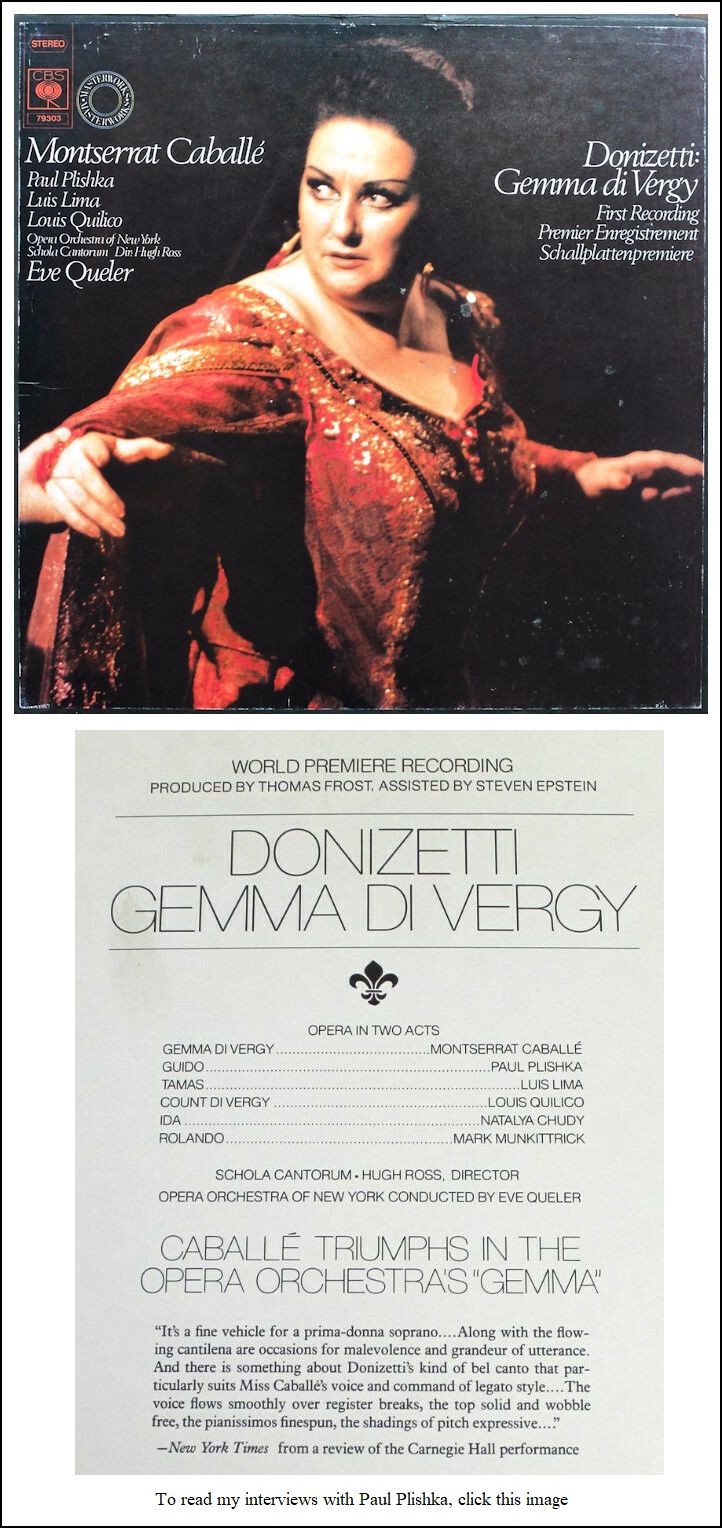
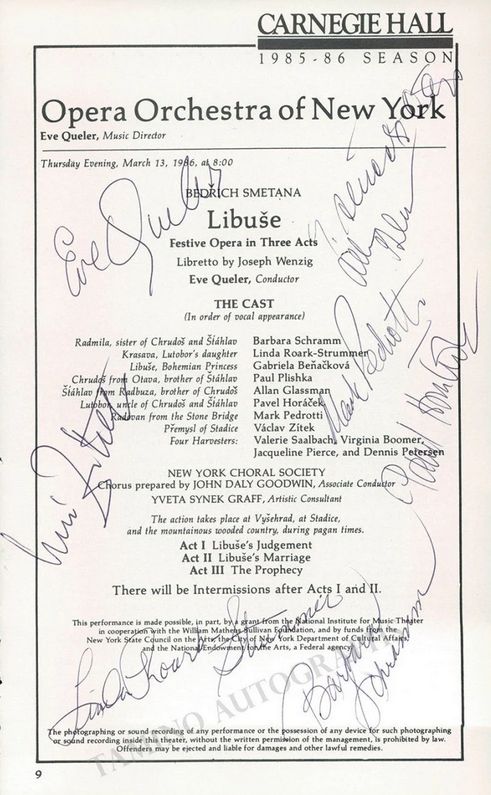
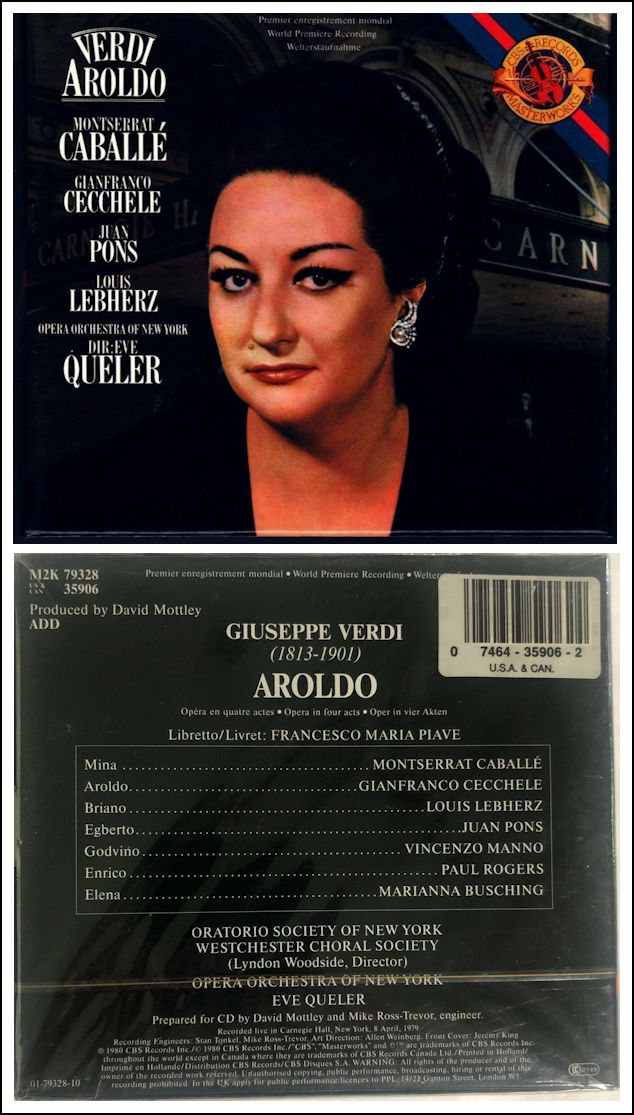
|
His productions were seen at the Opera Theatre of St. Louis (including Albert Herring, which was televised in 1978, Così fan tutte, Le nozze di Figaro, Gianni Schicchi, Ariadne auf Naxos, Maddalena), Santa Fe Opera (including Neues vom Tage, Il cappello di paglia di Firenze, and his posthumous production of Don Giovanni), Washington Opera (Anna Bolena and Postcard from Morocco), Opera Pacific (Regina), Dallas Opera (Madama Butterfly), Connecticut Grand Opera (Carmen), and the New Orleans Opera Association (La traviata, Il barbiere di Siviglia, L'elisir d'amore, Lucia di Lammermoor, Macbeth, and La bohème). From 1977 to 1989, Galterio was director of opera production at the Manhattan School of Music, where he staged The Nose, Sancta Susanna, Eine florentinische Tragödie, The English Cat, Feuersnot, Cendrillon, etc. In 1980, Galterio made his New York City Opera debut, with an acclaimed
production of La Cenerentola (with Susanne Marsee, Rockwell Blake,
and Alan Titus), which was televised over PBS. He later staged Die lustigen
Weiber von Windsor and Susannah for the company.
|
|
(. . .)
Howell has appeared with the Chicago Lyric Opera under the direction of Hal Prince. He has appeared as a guest artist at Aspen Summer Music Festival, sung the tenor solos in Verdi’s “Requiem” with the Tulsa Philharmonic, and was tenor soloist in a performance of Haydn’s “Mass in G,” conducted by Robert Shaw. He earned a bachelor’s degree in vocal performance from the Oberlin Conservatory, and a Master of Music from Tulsa University. He was a teaching fellow at the University of Oregon, and interim opera director for the School of Music during his post graduate studies. He has been an adjunct at Linfield College, and manager of the Linfield Chamber Orchestra. Since the late 1990s, he has directed numerous musicals and operas at Linfield, Oregon State University, and Gallery Theater. He describes himself as a “recovering tenor.” |
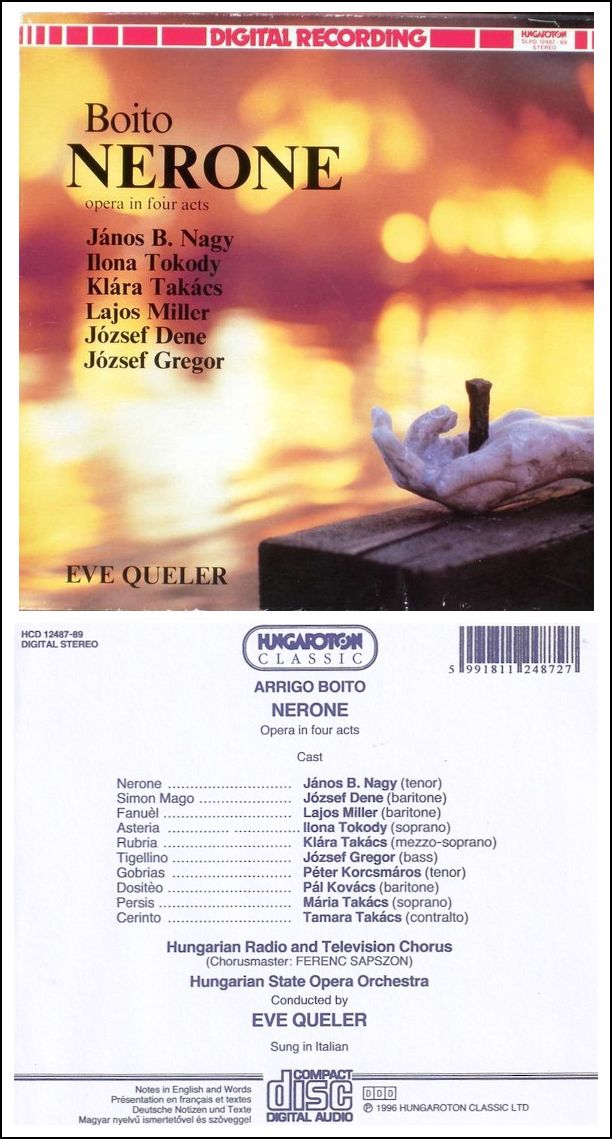
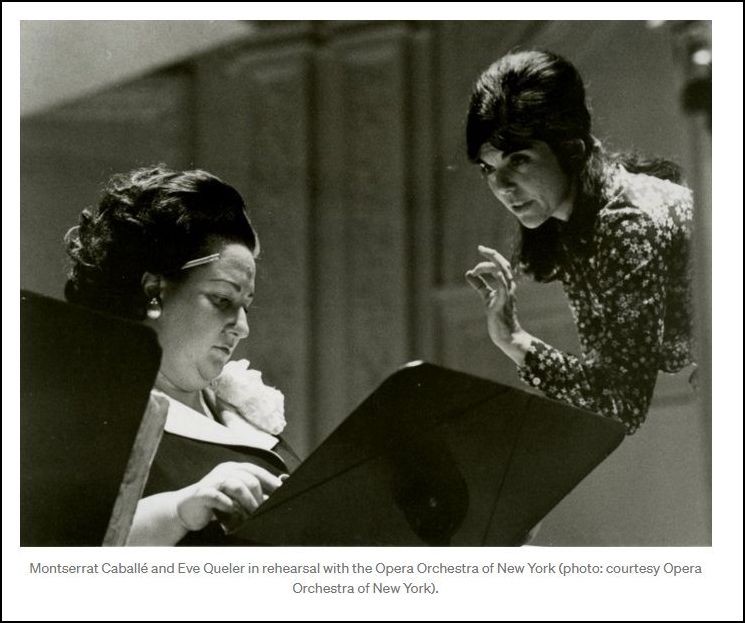
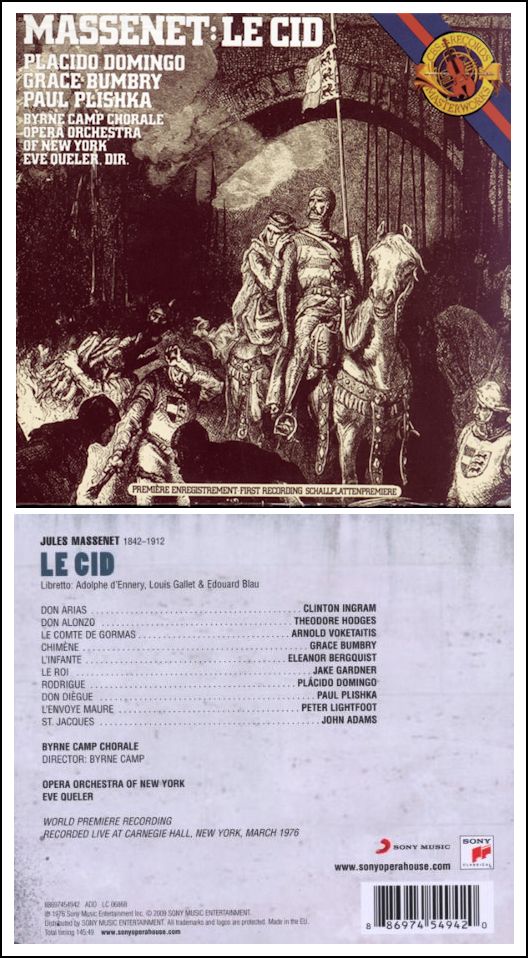
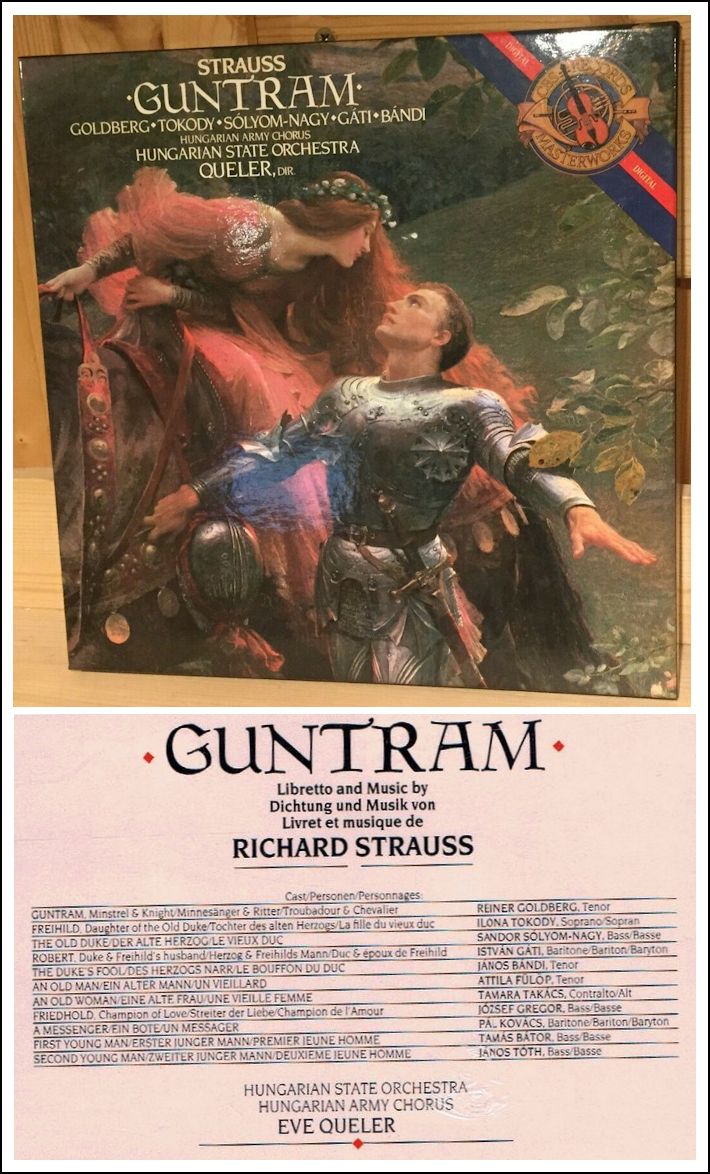
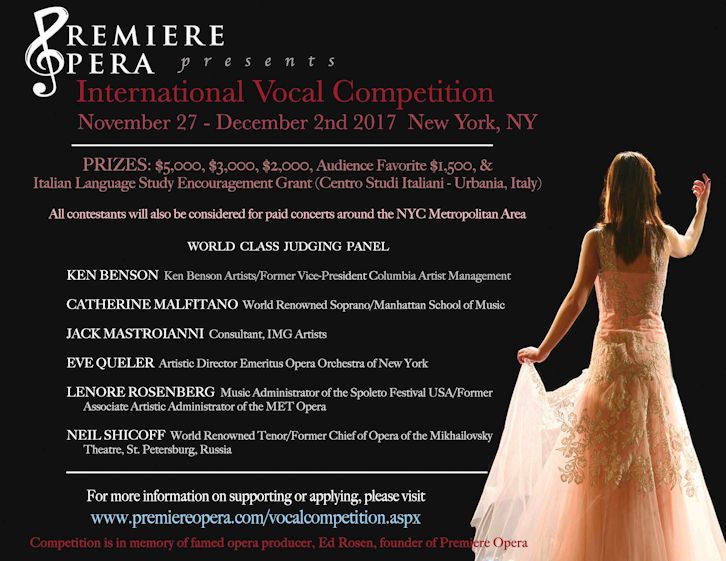
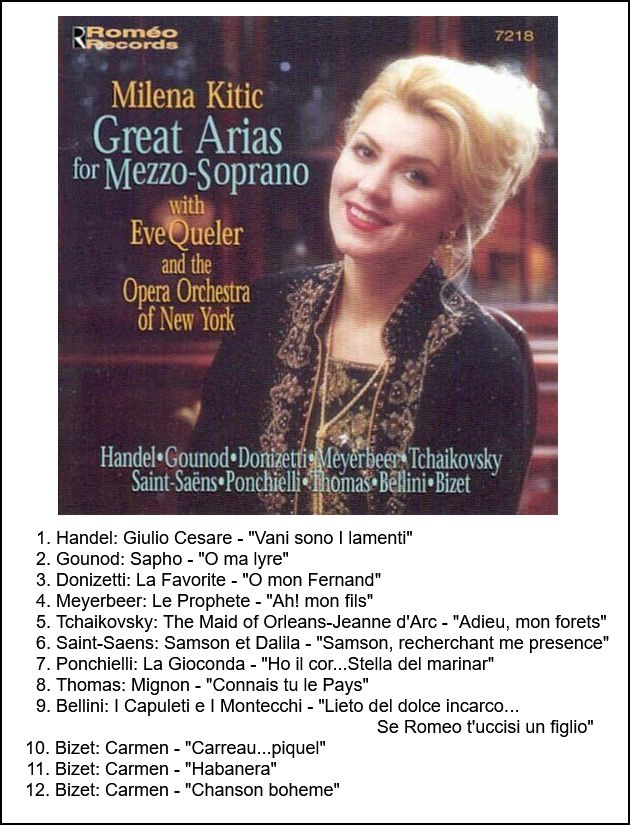
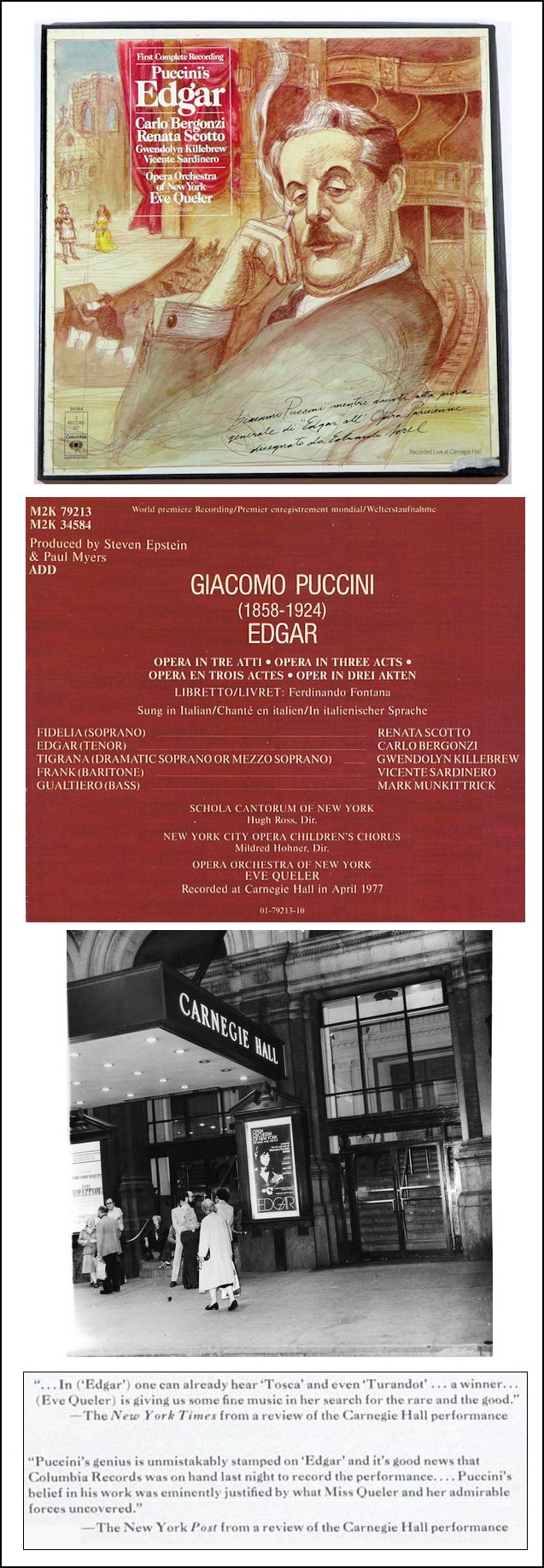
 If I may... During the years when I was gathering interviews
(1978-2006), it was my distinct pleasure to meet with many women composers
and conductors. The full list is HERE.
If I may... During the years when I was gathering interviews
(1978-2006), it was my distinct pleasure to meet with many women composers
and conductors. The full list is HERE.Besides the two who have already been mentioned (with links) in this interview, here is the list of the other female conductors who have been my guests: Antonia Brico, Fiora Contino, Kate Tamarkin, Kay George Roberts, Catherine Comet, Sian Edwards, JoAnn Falletta, Jane Glover, and Marin Alsop. |
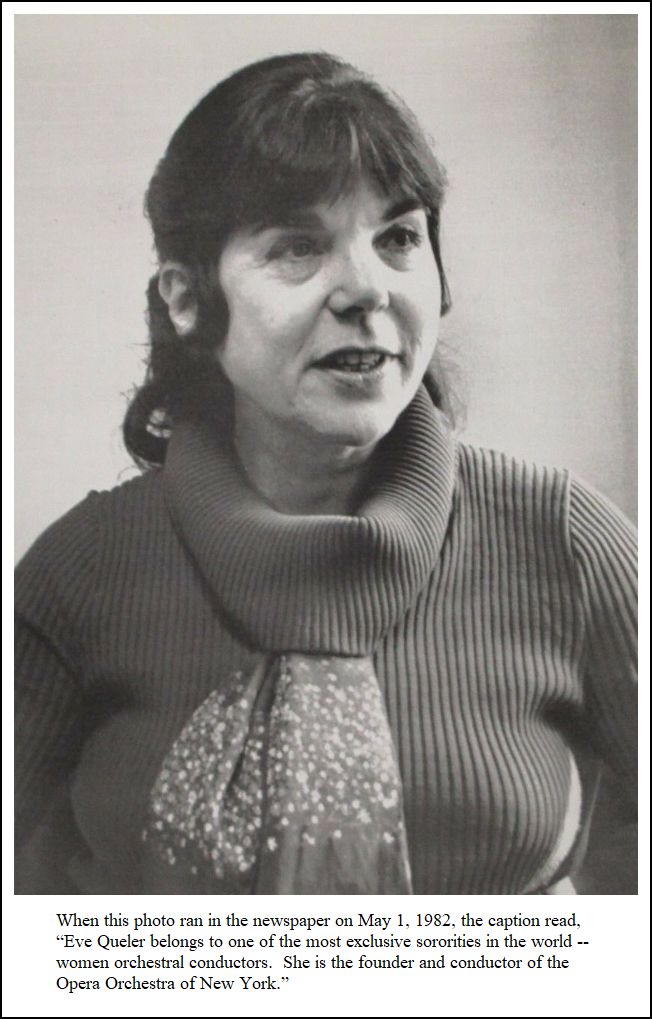
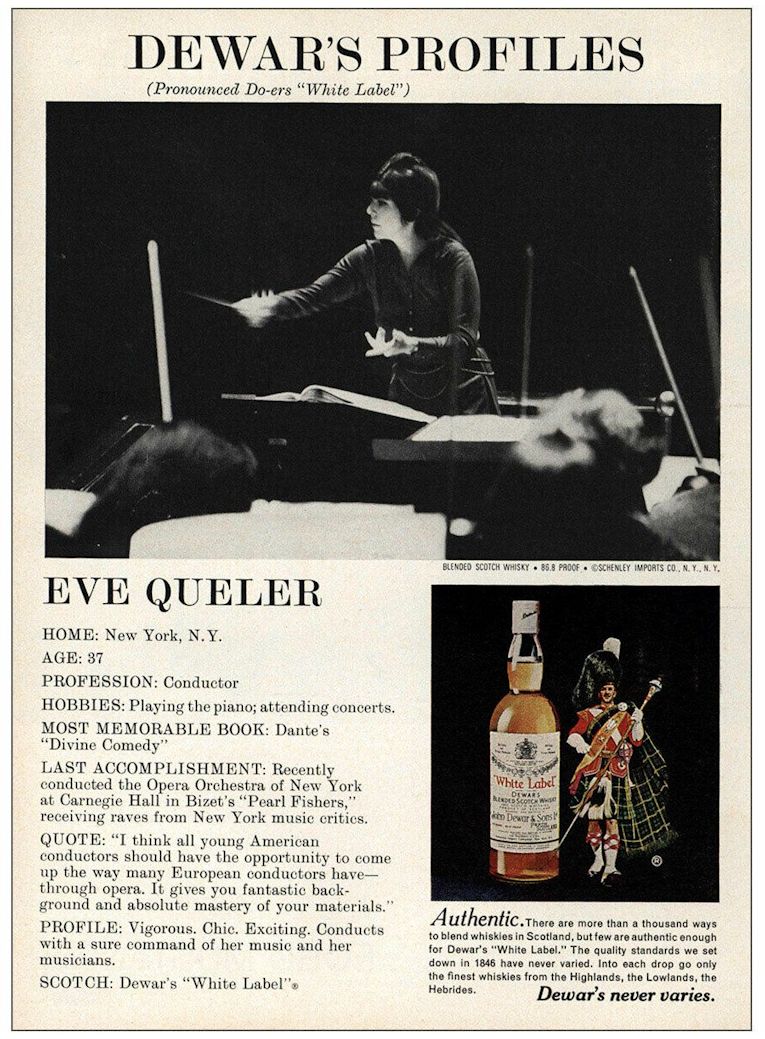
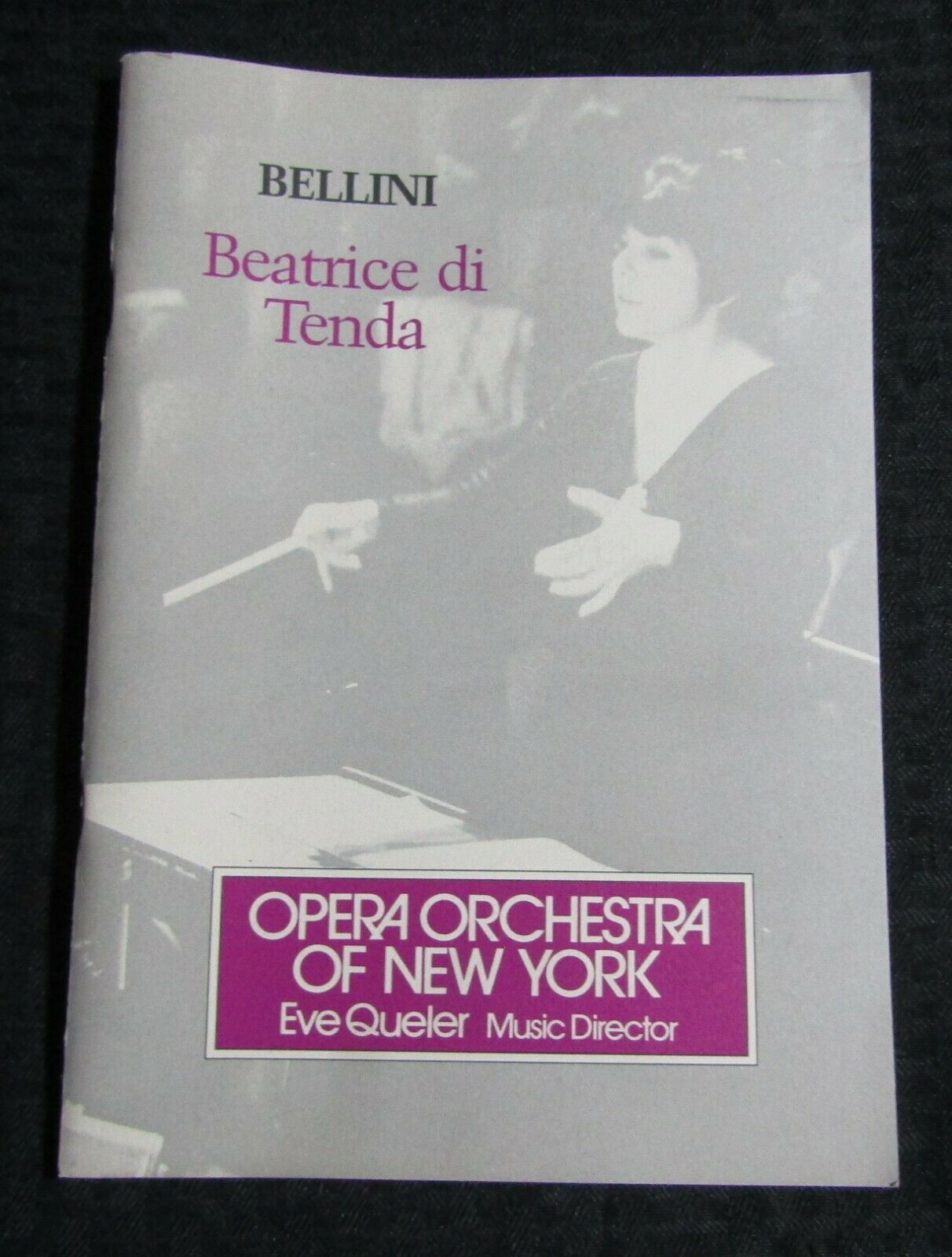
© 1980 Bruce Duffie
This conversation was recorded at the studios of WNIB, Classical 97 in Chicago on September 2, 1980. Portions were broadcast on WNIB later that evening, and again twice in 1988, 1990 and 1996. This transcription was made in 2022, and posted on this website at that time. My thanks to British soprano Una Barry for her help in preparing this website presentation.
To see a full list (with links) of interviews which have been transcribed and posted on this website, click here. To read my thoughts on editing these interviews for print, as well as a few other interesting observations, click here.
Award - winning broadcaster Bruce Duffie was with WNIB, Classical 97 in Chicago from 1975 until its final moment as a classical station in February of 2001. His interviews have also appeared in various magazines and journals since 1980, and he now continues his broadcast series on WNUR-FM, as well as on Contemporary Classical Internet Radio.
You are invited to visit his website for more information about his work, including selected transcripts of other interviews, plus a full list of his guests. He would also like to call your attention to the photos and information about his grandfather, who was a pioneer in the automotive field more than a century ago. You may also send him E-Mail with comments, questions and suggestions.